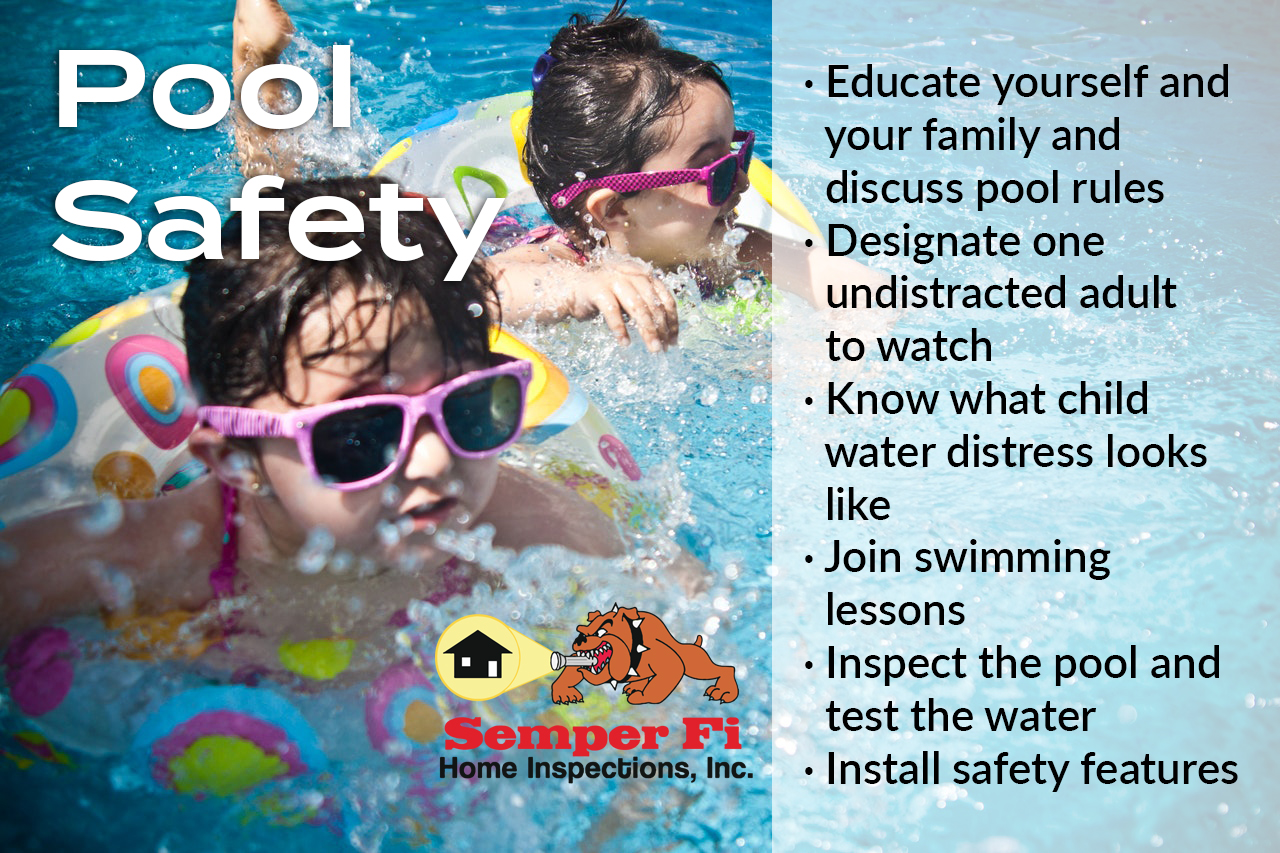Summer has arrived in the Dallas / Fort Worth area, and children are already home for summer break. This means that our pools are about to be in use if they are not already.
This makes it an important time to review pool safety.
Keep in mind that almost all water sources should have your attention. This includes in-ground swimming pools, above-ground swimming pools, hot tubs and even portable kiddie pools. Drowning is still the leading cause of death by unintentional injury in kids ages 1 through 4 and the second-leading cause in kids ages 5 through 9 in the U.S., according to the CDC.
Here are some safety items to consider – although this is by no means the final list and you need to make sure you research further and implement all safety features possible.
Educate yourself and your family
One of the most important things you can do is talk about pool safety as a family. All of the adults should understand the technical aspects of pool safety – a few of which we will touch upon in our list.
Both adults and children should thoroughly understand pool safety rules and why the rules exist. You should discuss this regularly with your children, especially at the beginning of pool season. Reinforce pool rules consistently just like you do any other house or safety rules.
Education also should also include basic safety and first aid, such as CPR, and having a plan established of what to do when an emergency occurs.
Designate one adult to watch
One of the most important rules you may want to consider would be that children can never go in the pool without an adult present. And like we mentioned above about discussing the rules with your children, it’s important for them to understand why this rule exists.
We also recommend when several adults are present that one is the designated watcher. It’s common when all of the adults are supposed to be watching, that no one really is because we all think that someone else is doing the watching at that exact moment. Or … people are paying more attention to their phones than the pool.
The designated watcher needs to officially hand off their duty if they will be stepping away or otherwise distracted, and should not be the person in charge of other activities, such as outdoor cooking or games.
You can print and laminate an on-duty card from sites such as safekids.org or poolsafely.gov.
Know what child distress looks like
Unlike what we see on TV or think drowning looks like, it’s often silent – especially with children.
We assume that a child in distress will be splashing and screaming, which will alert us to something wrong, yet that is rarely the case. Children often drown when they are upright in the water with their head tipped back.
This is why the role of watcher is so important. You need to intervene when there is even slight trouble, to prevent worse trouble.
Join swimming lessons
Teaching children how to swim from a young age can be important for safety. However, even people who are strong swimmers can still drown, so also don’t assume that just because a child knows how to swim that you don’t need to be diligent.
Talk with your pediatrician, and take into account the development level of your child when considering swimming lessons. The main goal of these lessons when children are fairly young is to make them comfortable around water and teach them some life-saving skills.
And don’t assume that floats, kickboards, tubes or other things automatically make the pool safe. These items are designed for fun, not necessarily with safety in mind.
Inspect the pool and test the water
Before the start of using your pool each year, have an annual pool inspection to check things like that the pool’s safety cover is working properly, electrical components are functioning, and the fencing and gates are solid and functional. Making sure no pool drains are exposed is also important, as these can accidentally trap a swimmer.
Regularly testing the water is also important, as too much chemicals could be an issue and cause anything from skin irritation to allergic reaction or worse. Too little chemicals and you risk having the perfect breeding ground for bacteria, viruses, and parasites.
Install safety features
Pool fences and gates are some of the most important things you need to install, and these should be at least 4′ above ground. Gates should be self-closing and self-latching, and open from the pool out.
Pool covers are also important. There are different requirements for all of these items based upon what type of pool or water feature you have, and may be additional guidelines required by your community.
Install alarms. Places where these help with pool safety are on exterior doors from your home that have access to the pool area, on the pool gate or door, and for the pool itself – both above ground and in-ground. These alarms are usually fairly inexpensive.
Even with fences, gates and alarms, you still always need to remain vigilant.
For commercial property inspections in the Dallas/Fort Worth area, including a thorough and informative home inspection report, learn more at
or request a quote for a commercial inspection at
682-351-2267



